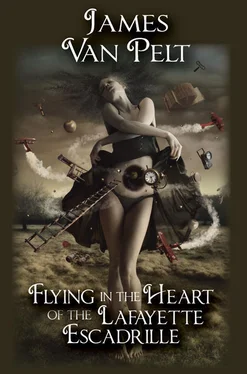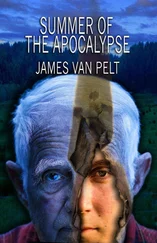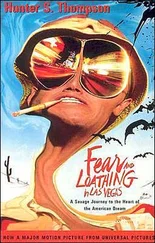I held my beer tightly, waiting for it to warm to a drinkable temperature. Even though I had been in the bar for an hour, I’d made no attempt to hook up with anyone. I contemplated the music, which is not artistic to my ear, but I find it beautiful that they have music. It tells me perhaps we will get along when this race breaks free from its planet, when we reveal ourselves to them. There has to be something worthwhile in a species that devotes so much time to music, and invented pool. And they dance, of course, which speaks well for them, even when it’s clear that much of the dance I see is variations on mating rituals. All posturing and invitations.
Trudy’s dance had none of that in it. Pure movement for the love of movement. The Trosfrilla have hierarchies of dance, achievement levels that take years to master, as do the Lasarént . In the mythology of encounters between our two races, there is a story of a war settled by a long dance. They danced the peace in, goes the tale.
“Do you want to dance?” said the woman. Short, a bit plump by human standards. I checked my watch. Young. Twenty-one. Untagged. Her friends sat at a table a few yards from mine, hiding their giggles. I don’t believe they thought she would have the courage to ask me. She danced well, for a human. At least she moved energetically. The song ended, and we waited for the next. She kept her hand on mine to keep from losing me in the crowd. We danced again. I made frequent eye contact. Responded to her changes in posture. Human dance: postures and invitation. I read her. She read me. Others jostled us. The music pounded in its numbingly unchanging beat. As always, I felt disconnected. I didn’t know her. She would never know me. No point of synchronicity in our lives. I could imagine her in my apartment in an hour or two, trying to close the distance. For me, what happened in the apartment was clinical.
What a fruitless pursuit on her part, even if I was human. I’d seen the same kind of face before. Sad, under the laughter. What would be the best she could hope for? That I wouldn’t leave her at the end of the evening? That I wouldn’t be in another bar on another night dancing with someone else? And then what would she have? Humans don’t meet in the mind as do the Lasarént . She would never press her back into the muddy wall of a den on the banks of the Hydrash , side by side with the family line. She’d never know ecstasy as the fleshy tendrils grew between us, from back to back, burrowed in, transferred genes and nutrients and emotion. She would never touch minds with her den mates in orgiastic communion all winter long.
I almost walked away from her. But a hand pressed against my thigh, and a voice whispered in my ear, “How do you handle the loneliness?” I turned. It was Trudy, already dancing away into the crowd.
What loneliness? I thought. I am a scientist on a mission. My work is my companion. We danced more. I bought the plump woman drinks.
At the apartment, she clung to me after I’d tagged her. “I was afraid I was too ugly for you,” she said.
I told her truthfully, “You are as beautiful as any woman I’ve seen.”
“You wouldn’t kid a kidder?” she said, and tears wet my chest when she pressed her face there.
“You wouldn’t kid a kidder”: To lie to someone who lies. This is one of many funny/sad utterances humans use, like “He has a face only a mother could love,” and “She’s built for comfort, not for speed.” Emotionally untranslatable.
The next night I sat in Bullsnappers until closing. Twice women asked me to dance. I declined. Sitting back, I watched the bar’s rhythm. Men and women in groups, leaning over tables, lined up at the bar, standing besides one another at the edge of the dance floor, mostly not talking, but together. Loud music. Too loud for conversation, but sometimes someone would touch another’s arm, and they’d push their heads together. She’d shout something. He would nod.
People got up, danced, sat down. Patterns emerged of touch and laugh and movement. Strobes flashed in the ceiling, and I watched the dance floor. Legs rearranging. Pelvic rotations. The sinuous flow of a skirt’s edge around a twirling woman. Bass beat, down deep, bouncing in my chest. No pause between songs, and the pattern started again. Hands on backs, shifting. Thighs pressed against thighs under tables. A kiss on a cheek. A bathroom door opened, and harsh light silhouetted the figure coming out.
It was all too loud, chaotic, and… alien. I couldn’t integrate here. Hadn’t integrated for so long I wasn’t sure I could. Nothing felt right. I left cash on the table and pushed my way to the exit. Faces blurred. Strange faces loud with horizontal lines and teeth and darting eyes, watching each other, watching me, and knowing nothing.
Outside, I breathed raggedly. Barely made it to my car. At the apartment, hands shaking, I ran a diagnostic. Maybe one of the implants was breaking down. Maybe, after all this time, my Lasarént immune system was rejecting the grafts, or it could be an acquired allergy. I had too many symptoms, but the equipment reported nothing wrong. Everything normal. For the first time in my field experience, I sedated myself and remained unconscious for several days.
On a Wednesday night, I returned to the Sleepy Jean. Same red lights. Same soothing murmur under the boat. No one in the bar besides the bartender, a cook and myself. I took notes idly about peanut shells on the floor, and how they cracked underfoot, about lingering odors beneath the obvious ones: perfumes, sweat, detergents, petrochemicals. The chair’s surface was cool and smooth, and I realized for the first time that it was an imitation of leather.
Around the room, numerous fakes and imitations. On the walls, old movie posters, but, on close inspection, not the originals. Baseball mitts hanging from the ceiling, just like ones I’d seen in several other bars to provide “atmosphere,” along with old road signs, car license plates, a pair of snow shoes, a boat oar, a stuffed peccary, several fishing poles: all pretending to be random, as if the bar grew to be this way instead of being designed. The beer mugs done in an old-fashioned style. The bartender dressed as a riverboat captain. Fakes. I scribbled into my notebook. So much of the integral human experience involved fakery, which was no different from what happened between them. For years I’d watched them come into bars, pretending to be at ease or happy or interested or interesting, and it all covered something else. Like their language.
I put my notebook down and shut my eyes. If I ignored the glassy clink behind the bar, shut out the alien cooking smells and odd gravity; if I concentrated on the river’s swishy passage under the boat and the dim red light through my eyelids, I could almost imagine faraway Lasarént . What season was it there? Would the rivers be running high now on their winding flow to the shallow seas? Would the hills be oozy and wet under the reddish sun? I licked my lips, tasted the river’s moisture on my tongue. Rested my head on the chair’s back to feel the moving water better.
I stayed that way for a long time.
Footsteps thudded on the floor. I felt them, and I scrinched my eyes tighter, trying not to break the feeling, but a chair scraped back, and someone joined me at my table. The problem with the vacant chair is it invites company. I thought about sending the person away. Another specimen for the database didn’t seem that important right now. What would be the use of one more tagged woman, moving through her life, tracked by invisible Lasarént field scientists? What would be the good of me committing one more act of human fakery?
It was Trudy.
Читать дальше










